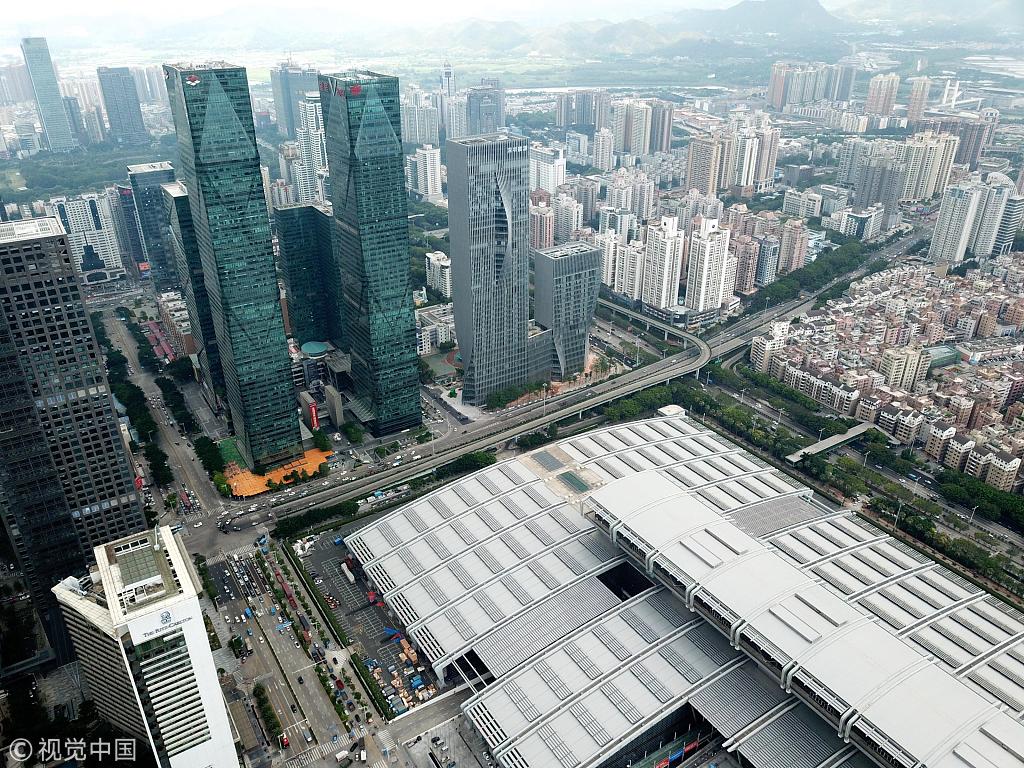The trade war between China and the US began on July 6. China announced that its countermeasures against US protectionist tariffs took effect at noon. The Ministry of Commerce stressed in a statement that China will unswervingly expand reform and opening-up, protect entrepreneurship and intellectual property rights, and create a sound business environment for foreign companies in China.

Photos: VCG
Chinese society is outraged by the US-initiated trade war, and the majority supports the government's firm counterstrike. The official announcement ordering further reform and opening-up shows how calm and firm the country is.
The initial $50 billion of products at the center of the trade war may not be a large sum for the US or Chinese economy. But it has symbolic meaning. It will affect how Chinese and American societies view bilateral relations and will add to strategic mistrust.
The trade war may escalate and economic tensions may spread to other areas. China has experienced 40 years of fairly smooth reform and opening-up in a relatively relaxed international environment, except during temporary tensions with the West. The latest trade war will make many feel that China's external environment is changing, and that it will take on the pressure and risks that have not been seen in a long time.
The external pressure will force the Chinese to review domestic and foreign policies. We hope much of the pressure will push the country toward further reform and opening-up and create greater social vitality and tenacity, rather than push it toward stricter social administration and conservative policies against liberal society.
The China-US trade war is not merely between the two countries. It also shows two directions of development. The US represents unilateralism, protectionism and economic nationalism, vis-à-vis China's push for multilateralism and free trade. China is standing in the right historic direction, with the US in the opposite direction. China developed economic power through reform and opening-up, which the US is targeting. We must uphold reform and opening-up while engaging in a trade war with the US.
Upholding reform and opening-up requires broad national participation, demanding a high-degree of liberalism as the basis and calling for society's participation to make it a "people's war."
To be fair, when a country is confronted with difficulties and risks, stricter management is inevitable. However, such measures should be temporary and their purpose must be to prepare for greater vitality. It must not bring the contrary result with a tightened economy and restricted social life.
The so-called strategic rift between China and the US is not a conventional geopolitical contest, but a contest between the two countries' ability to sustain development. For a major country to develop, it must have the organizational ability to maintain social order and abundant social vitality and creativity. China has an advantage on the former, while the US is good at the latter. The US political system falls short on the first indicator, and some people believe that it will be difficult for China to make the latter a strong point.
It is very likely that this will be the last-ditch effort for China's rise. China must enhance its social vitality to the highest level, release the potential of people's intelligence, enthusiasm and aspirations under the current political system, and eventually give every member of society hope to prosper.
Crisis creates opportunities in Chinese philosophy. If China strives for greater levels of reform and opening-up as a result of the trade war, then the trade war will become a historic opportunity for the country's rise in a healthier way. We pray it will be the case.


